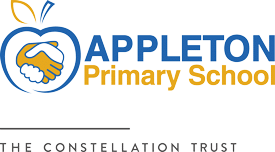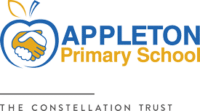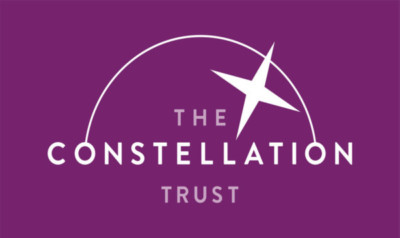RE – curriculum overview
Intent
At Appleton Primary School, it is our intent for RE in our school curriculum to engage, inspire and challenge pupils, equipping them with the knowledge and skills to explore the different religious beliefs and world views that are followed in our multi-cultural society. We also want our learners to develop the ability to make reasoned and informed judgements about religious and moral issues and enhance their spiritual, moral, social and cultural development through the curriculum.
At Appleton, our curriculum is based on the Hull and East Riding Agreed Syllabus for RE, which our subject leader has mapped out the year group objectives to ensure that pupils can aquire the skills and knowledge to develop a religious literacy before moving into KS3. The syllabus encourages children to learn about religion and worldviews through the three disciplines of Theology, Philosophy and Social Sciences.
Our curriculum for RE aims to build on previous learning and as our learners move through the school the teaching of progressive skills ensures that RE learning is embedded. We ensure that religious literacy is developed through encouraging our learners to appreciate and understand the beliefs and world views that are held within our religiously diverse society and to develop their understanding of the influence these beliefs and values have on individuals and communities alike.
Implementation
Our curriculum aims to introduce learners to different ways to enquire about world religions and worldviews through using the idea of an ‘about believing’ lens (theological), and ‘about living’ lens (social sciences) and a ‘thinking about’ lens (philosophical). This ensures learners have the opportunity to explore religions and worldviews through a balance of beliefs, ways of living and thoughtful, deep questions.
Each unit within our curriculum uses an enquiry approach to learning, drawing upon prior knowledge, skills and understanding. The topics studied will be taught in a deeper way, using a multi-disciplinary approach in order to pay attention to the big ideas which underpin learning.
In Key Stage One the children’s RE knowledge will mainly focus upon Christianity and Judaism. In Key Stage Two the pupils will continue to learn about these religions alongside those of Hinduism, Sikhism and Islam in some depth. There will also be the opportunity for other religions and world views to be referenced where appropriate.
There should be a balance of teaching of the two attainment targets which direct the children to ‘learn about’ (Knowledge and Understanding) and ‘learn from’ (Reflection and Response), religions or other world views.
Within the Early Years, RE will encourage the learner’s natural curiosity of the world around them and will have the opportunity to begin to explore the world of religion. They will be introduced to festivals from key religions and cultures. They will look at some elements of these such as important figures, places of worship, sacred books and stories, customs and routines. They will begin to think about their own culture and/ or religion and know there are similarities and differences between individuals, families and communities.
All children have access to the RE curriculum with work being tailored appropriately for children with SEND. Children will learn through similar activities, with final outcomes modified to suit all needs.
The ‘Right of Withdrawal’ from some or all parts of the RE curriculum is discussed sensitively with parents if the need arises.
Impact
The impact of learning in RE is measured through the use of ‘Big Questions’ during each RE lesson, followed by a summative ‘End of Unit Quiz’ which demonstrates what has been understood in the unit. This is informed by the statutory End of Key Stage Expectations which describe the knowledge, skills and understanding which is expected of a pupil who has a secure understanding of what has been taught. Our R.E. curriculum it taught using a ‘spiral’ approach whereby key content of the three disciplines and world religions are re-visited and knowledge is developed and added to each year in order to ensure that learning can ‘stick’.
Overall, RE lessons should enrich the experiences of our children and they should be able to discuss their knowledge and understanding of some religions and world views sensitively as a result.
Curriculum progression information:

“Big shout out to the teachers – doing a great job.”

“Resources have been really helpful and provided challenge.”

“You do an amazing job with our children.”

“Thank you from myself and my boys – we just wanted to show our appreciation.”

“Had a lovely morning visiting the school. It’s always a pleasure to meet with teachers who value the importance of the Arts in education.”

“It looks like the children are really enjoying themselves.”

“Very enthusiastic pupils with lots of energy and impeccable behaviour.”

“Fantastic school, students were brilliant. Thanks for having us.”

“Thank you to all teachers. Good teaching changes lives.”

“My son is sad to be leaving Appleton. He has loved his time at the school.”

“Thank you for your support at this time – it has really meant a lot.”

“Thank you for your efforts, it makes a huge difference to the kids!”

“Thanks as always for putting the school work onto the website for my children.”

“Thank you to everyone involved in producing that work as it is a perfect indicator of what levels and subjects to go with.”

“The children were an absolute delight, full of smiles and energy. Thank you for a lovely afternoon.”




